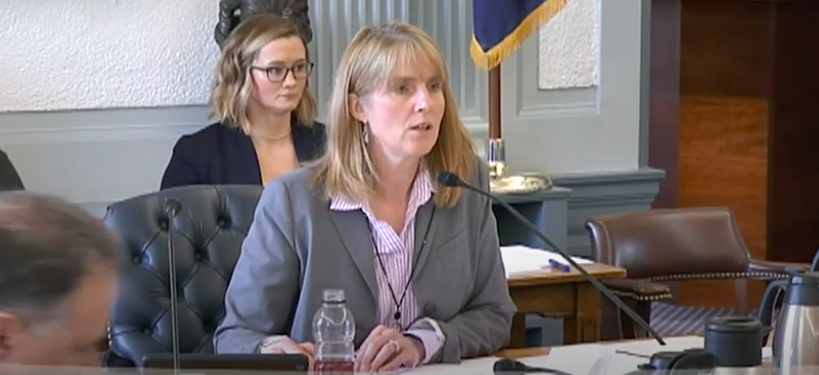The Alaska Senate is working through its version of House Bill 49, the roll-back of the much-maligned SB 91, which has been blamed for Alaska’s crime wave. The Senate has inserted stronger sanctions for drug offenses, sex offenses, and other crimes.
Senate Finance Committee passed a heavily amended version HB 49 on Sunday that included many pieces of the original legislation requested by Gov. Michael Dunleavy, provisions that had been stripped out by the House Democrat-led Majority.
Some of the changes to the bill that was heard on the Senate floor today:
- Repeals the “marriage defense” for rape. This defense was left in law by the House last week. This makes it easier to prosecute sex crimes when victims are incapacitated or unaware.
- Increases presumptive felony and misdemeanor sentencing ranges, many pretrial provisions, and probation lengths to levels that existed before SB 91 took effect.
- For drug possession, the first offense would be a misdemeanor, with up to a one-year sentence; after that it would be a class C felony. The bill that came from the House allowed two misdemeanors.
- Prohibits mandatory parole and good time for murder 1, murder 2, and manslaughter; and only allows discretionary parole for these crimes after 2/3rds of the sentence has been served.
- Increases the penalties and seriousness of certain sex crimes including unlawful exploitation of a minor, indecent exposure near children, and child pornography.
- Requires a presumption of “no contact orders” for cases of domestic violence and sexual assault.
- Expands the “duty to report” abuse for people who work with children.
- Increases the amount of notification and information available to crime victims.
- Reinstates “Truth in Sentencing” language.
- Reinstates stricter penalties for violating bail conditions and conduct.
- Repeals the Pretrial Enforcement Division and moves its duties to the Department of Corrections.
- Removes technical violations for parole and probation but allows administrative sanctions.
- Allows, but does not require, the use of the risk assessment tool for setting bail and returns discretion to the court on bail.
- Keeps the time between arrest and arraignment at 24 hours, barring compelling reasons to extend.
- Limits treatment credit against a sentence to 180 days.
- Removes mandatory electronic monitoring for DUIs.
- Prohibits “good time” for treatment, time in a private residence, and electronic monitoring for certain serious crimes.
- Makes it a crime of harassment to send repeated, unwanted pictures of genitals to someone.
- Clarifies that Native organizations are eligible entities to run VPSO programs.
- Requires Department of Law, in conjunction with Department of Public Safety, to track and gather data on felony sex offenses to be included in the Alaska Criminal Justice Commission’s annual report.
- Removes provisions related to reentry plans. This has since been amended on the Senate floor.
- Requires the court to transfer records regarding involuntary commitment going back to 2011 instead of 1981.
- Allows drivers’ license cancellation for people who owe more than $1,000 for moving violations.
- Requires use of headlights at certain times; prohibits any requirements to use headlights except as provided for in (a).
- Changes who is eligible to have a permanently revoked drivers’ license restored after 10 years.
The bill was held until the Senate reconvenes on Tuesday.
